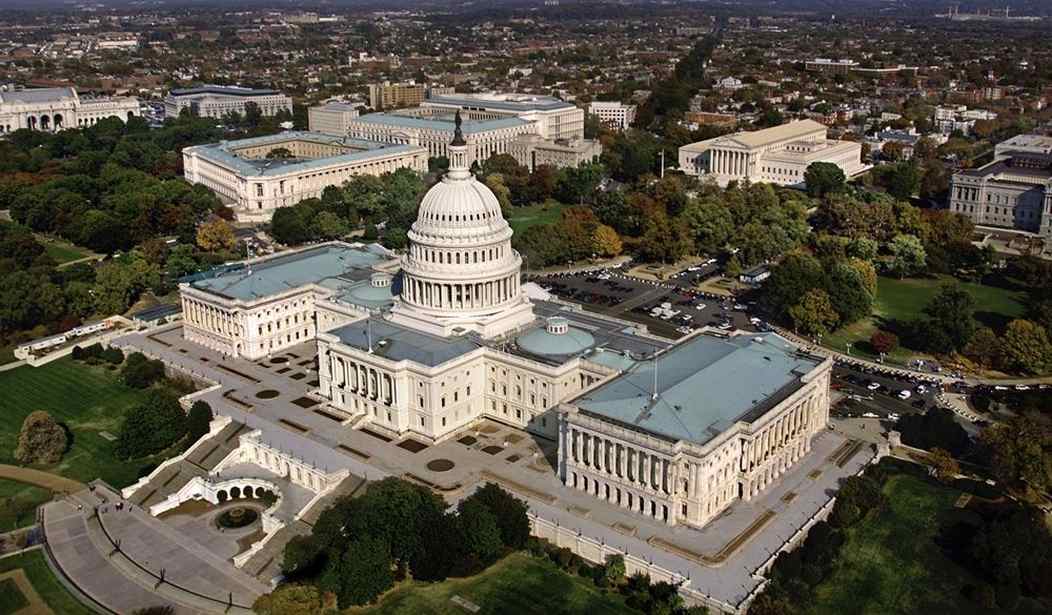As a state lawmaker in Kansas, I learned the hard way that Washington, D.C. isn’t the only “swamp” in American politics. At almost every level, American government has grown so large and all-encompassing that its purpose, and therefore its process, has been corrupted.
Consider the recent legislation to provide healthcare to veterans exposed to toxic burn pits. Instead of simply appropriating the necessary funding and scoring an easy bipartisan victory that keeps our nation’s promise to care for its veterans, Senate Democrats included a budgetary gimmick that allows for hundreds of billions of dollars in new, unrelated spending by moving $400 billion from the discretionary to the mandatory side of the ledger.
Under Senate rules, this maneuver frees up that much room for new spending before Congress hit budgetary caps. When Republicans led by Sen. Pat Toomey objected, Democrats tried to portray them as being hostile to health care for veterans. This sort of thing happens all the time in government.
In 1994, I became Chairman of the Taxation Committee in the Kansas House of Representatives and led a successful multi-year effort to reduce taxes on businesses, families, and individuals. I now wish I had taken a very different approach.
My strategy was to obtain sufficient votes to overcome a reluctant governor, and I cobbled together tax reduction on any issue which had sufficient votes. I wanted to reduce the overall size of government and since no one had the discipline to directly cut a budget, I wanted to force cuts by reducing the revenue stream.
Recommended
I failed to consider how my efforts, through targeted tax cuts, insteadstrengthenedgovernment power, removing that power from individuals and families. I was right to try to reduce government’s assault on personal and family income – but I also should have equally worked to expose the corruption of government’s purpose.
The Internal Revenue Service Code and accompanying regulations is more than four million words, not including court cases interpreting the code. State codes can be just as complex.
The King James Bible, for comparison, has 788,280 words.
Government power hides in the complexity of our tax structure and laws – in every word of this byzantine regulatory structure, each clause backed by a constituency. These factions ferociously lobby, donate, and vote to maintain the status quo, inhibiting reform and entrenching power.
While a legislator I sought to deregulate barbering. State regulation of barbers harkens back to the 18thcentury when barbers engaged in bloodletting as a method of healing, their services advertised by the red spiral in barber polls.
By 1995, a person entering the trade would need more than $30,000 in capital. Aspiring barbers had to pay tuition at licensed schools, forgo other income to attend school full-time, and pay facility compliance costs if opening a barber shop.
The capital cost prevented many from entering the trade, and that is just the way the barber board liked it. Government, through heavy regulation, limited the number of barbers, protected the present market for barbers, and denied opportunity to aspiring barbers.
Many barbers lined up to oppose my efforts, and I did not have any allies. Wannabe barbers did not have a PAC, NGO, or lobbyist to function as a counterweight. The effort failed.
For most of today’s “leaders,” the political calculation is simple – support those with a vested interest, as those directly affected are more willing to spend resources to support elected officials who do their bidding.
This calculation, and the various factions benefiting from the arrangement, now drive politics, media reporting, and our toxic cancel-focused political dialogue.
Moreover, mass media economics nationalizes all issues demanding a federal government response to all frailties of the human condition. National leaders know media exposure provides relevance, and relevance provides money and support, and therefore must claim to have some solution.
Each day we see and read of national leaders arguing over the latest media obsession. When was the last time a member of Congress said, “I can’t fix that, the solution is found with people exercising freedom with responsibility”?
We have fostered the false belief that the American people are incapable of using their freedom to solve problems and that all answers reside within the halls of Congress or the White House.
We have corrupted government’s purpose, and the fruit of that corruption is now visible.
Rather spend all my efforts to targeted passable tax cuts, I should have also worked toward simplifying the tax code to expose the corruption.
That effort is fully consistent with my belief that American families and individuals are more suited than government to appropriately apply their resources and talent to their futures.
My primary role as a leader, therefore, was protecting their liberty to do so.
Phill Kline is the former Kansas attorney general. He is now a law school professor and director of The Amistad Project.
























Join the conversation as a VIP Member